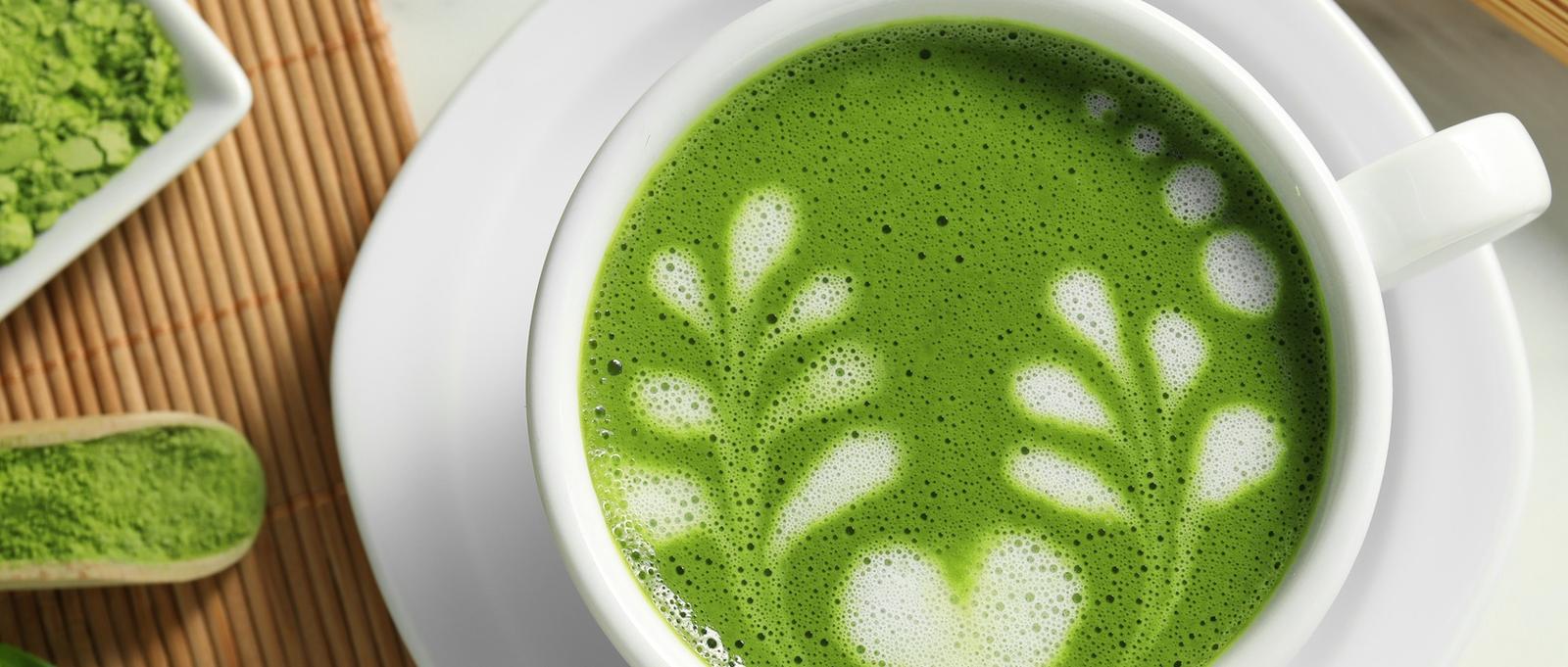
Lifting the lid on yoghurt's hidden health benefits
Peer reviewed by Dr Krishna Vakharia, MRCGPAuthored by Victoria RawOriginally published 12 May 2024
Meets Patient’s editorial guidelines
- DownloadDownload
- Share
- Language
- Discussion
There are many types and brands of yoghurt available in supermarkets worldwide. From low-fat to full-fat, flavoured to fruit, each promotes a range of unique features and health benefits. This article explores yoghurt's healthy upsides and how to spot the not-so-healthy options.
In this article:
Video picks for Nutrition
Is yoghurt good for you?
Yoghurt - in particular Greek yoghurt - is widely recognised as a health food due to its beneficial nutrients and probiotics. It is a versatile ingredient that can be added to a variety of wholesome meals. Eaten by millions across the globe, yoghurt is a fermented food made by mixing milk with live bacteria (probiotics). This good bacteria transforms the milk's natural sugar (lactose) into lactic acid which thickens the milk, giving yoghurt its distinctive texture and tangy flavour. Because of these popular wellness benefits, consumer demand for yoghurt is higher than ever1.
Health benefits of natural yoghurt
Back to contentsToday's yoghurt aisle offers a variety of flavours and ingredients. But what are the health benefits of natural yoghurt?
Reema Pillai is a private dietitian based in London at Dietitian Fit. She explains that yoghurt provides vital nutrients such as protein, vitamin B12, calcium and potassium. Because it is a fermented food, it's also a good source of probiotics. These support the diversity and population of our healthy gut bacteria, which improve digestive health and immunity.
Probiotics
Packed with probiotics, natural yoghurt contains good bacteria that improve digestion and boost your immune system.
Calcium
Yoghurt is a good source of calcium2 - a mineral the body needs to keep our bones strong. Calcium is also essential for muscle movement, blood circulation, hormone release and for keeping the nervous system working.
Vitamins
Dairy yoghurt is full of vitamin B12 (riboflavin). This type of vitamin helps convert food to energy, boosts our metabolism and keeps cells functioning. Many yoghurts are also enriched with vitamin D, which is crucial for bone health3.
Potassium
Yoghurt is rich in potassium4 - a mineral that balances fluids, supports nerve function and regulates blood pressure.
Protein
Protein is made up of amino acids that help with muscle and bone repair. Eating yoghurt can boost your protein intake - especially Greek yoghurt which is even higher in protein5.
Continue reading below
Are all yoghurts healthy?
Back to contentsStudies show that natural forms of yoghurt can boost gut health, strengthen your immune system, and even help in managing conditions like osteoporosis, heart disease, and diabetes6. However, not all yoghurts are healthy - despite what it says on the pot.
Pillai says: "Some yoghurts are marketed as being low fat or fat-free, and although they are lower in calories, they often contain added sugars or sweeteners to replace the flavour of removing the fat.
"Any flavoured yoghurt is likely to be sweetened using sugar, or a form of sweetener, so it is important to check these flavoured yoghurts before buying."
Flavoured and Fruit Yoghurts
Some products, such as flavoured or shop bought fruit yoghurts often contain added sugar. In stark contrast to the health benefits listed above, eating too much sugar can harm your health and raise your risk of obesity, diabetes, and heart disease. A combination of fruit and yoghurt might seem a healthy choice, but the added sugars and flavoured syrups found in the fruit compartment of a yoghurt pot will significantly increase its sugar content7.
Artificial Sweeteners
While sugar-free options may sound good, research suggests that yoghurt containing artificial sweeteners might disrupt your gut function and contribute to weight gain8.
Low/Fat-Free Yoghurts
Low-fat or fat-free yoghurts often come with added sugar to improve taste and compensate for the lack of fat. It’s worth pointing out that full-fat yoghurt can still be a part of a healthy diet when consumed in moderation.
Which yoghurts are good for you?
Back to contentsWhen it comes to choosing yoghurt, it's important to go for those containing good bacteria. Pillai suggests checking that the label contains phrases such as 'live' and 'active' cultures, or includes the names of certain bacteria in the ingredient list.
The most popular are bacteria known as:
Lactobacillus.
Streptococcus.
Bifidobacterium.
She adds: "These bacteria are known to provide healthful effects, and can be found in many yoghurts such as Greek and Icelandic yoghurts, as well as kefir."
What to look out for on the label:
Plain yoghurt - such as Greek yoghurt - is less likely to contain added sugar9 and is particularly rich in protein. Scan the ingredients list first to check there's no added sugar in the product before buying.
Prebiotics are a type of fibre that feed the good bacteria in your gut. While some yoghurts have prebiotics added already10, you can also pair plain yoghurt with prebiotic-rich foods such as chopped banana, honey or chicory root11 to further boost your gut health.
Look for 'live and active cultures' on the yoghurt label. This means it has an excellent source of good bacteria to help keep your gut happy.
Choose yoghurt with a recent production date and eat it before the best before date. Probiotic bacteria are most active when fresh and are less effective after being in prolonged storage conditions12.
Continue reading below
Is yoghurt safe for everyone?
Back to contents"Yoghurt is safe for the majority of people to consume," says Pillai. "But there are a small number of people with lactose intolerance or even an allergy to cow's milk."
If you're lactose intolerant, studies show that the friendly bacteria found in yoghurt actually help break down some of the lactose, making it easier to digest than other dairy foods13. However, it's still a good idea to start with a small amount of yoghurt, see how you get on and stop if you feel uncomfortable.
If you have a cow's milk allergy, you should not eat yoghurt as it’s primarily a dairy product. People with milk allergies may have a severe reaction to eating even a small amount of yoghurt.
Plant-Based Yoghurts
Back to contentsPillai suggests that someone with a cow's milk protein allergy can opt for a plant-based yoghurt alternative, such as soy yoghurt.
"Many of these plant-based alternatives have had bacterial cultures added to them," she says. "So they can still be beneficial for our overall health. However, it is important to look for these plant-based yoghurt alternatives that have not been heat treated, as this will otherwise kill the bacteria present in these foods."
Choosing a healthy yoghurt
Back to contentsNatural yoghurt is an excellent source of good bacteria, protein, calcium, vitamins and minerals. It can support gut health and contribute towards the healthy function of the body. However, as Pillai warns, not all yoghurts are created equal.
Remember to:
Read the labels carefully.
Choose plain yoghurt with no added sugars or flavours.
Check for a recent production date.
This way, you can enjoy the benefits of yoghurt without any negative effect on your health.
Make your own yoghurt
Back to contentsIf you're unsure about which supermarket yoghurt to choose, why not make your own?
Easy yoghurt recipe
Pillai recommends that a quick and easy way to add yoghurt into your diet, is to make yoghurt bowls. These could be as a breakfast, a snack or even a dessert:
Put 2-3 tablespoons of a live yoghurt in a bowl.
Top with some fruit such as sliced banana and a handful of berries.
Add in 30g of mixed unsalted nuts or seeds like pumpkin seeds.
Enjoy.
And here's a simple slow cooker recipe for making healthy, natural yoghurt that's free of sugars and artificial ingredients.
Further reading
Back to contentsFreitas: Chapter 24 - The Benefits of Yogurt, Cultures, and Fermentation
Uduwerella et al: Minimising generation of acid whey during Greek yoghurt manufacturing
Wan et al: Strategies for lowering the added sugar in yogurts
Prasanna et al: Chapter 9 - Potential Applications of Prebiotics to Yogurt and Impact on Health
Davani-Davari et al: Prebiotics: Definition, Types, Sources, Mechanisms, and Clinical Applications
Tripathi et al: Probiotic functional foods: Survival of probiotics during processing and storage
Savaiano: Lactose digestion from yogurt: mechanism and relevance
Patient picks for Nutrition

Diet and nutrition
8 benefits of matcha tea
Brad Pitt drinks it instead of booze, Gwyneth Paltrow slathers it on her face, and Dean from The Apprentice calls it his favourite drink. But are there really health benefits to matcha tea? We look at what matcha tea contains and the evidence for what this may do for your body and mind.
by Victoria Raw

Diet and nutrition
Health benefits of garlic
Garlic can do much more than just ward off vampires and add flavour to our meals. From protecting us against the common cold to lowering our blood pressure, current research suggests it may have some real health benefits too.
by Victoria Raw
Continue reading below
Article history
The information on this page is peer reviewed by qualified clinicians.
Next review due: 12 May 2027
12 May 2024 | Originally published
Authored by:
Victoria RawPeer reviewed by
Dr Krishna Vakharia, MRCGP

Ask, share, connect.
Browse discussions, ask questions, and share experiences across hundreds of health topics.

Feeling unwell?
Assess your symptoms online for free
Sign up to the Patient newsletter
Your weekly dose of clear, trustworthy health advice - written to help you feel informed, confident and in control.
By subscribing you accept our Privacy Policy. You can unsubscribe at any time. We never sell your data.